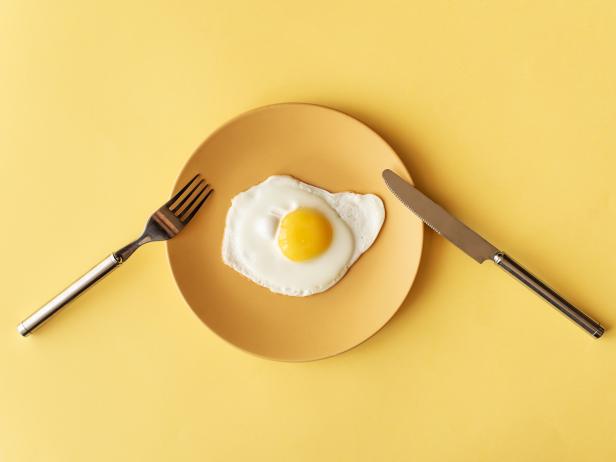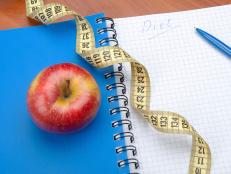5 Pieces of Advice Nutritionists Say You Should Stop Following
Up-to-date research says eating an egg each day is A-OK.

Kseniya Ovchinnikova/Getty Images
It seems that new nutrition advice is always popping up. Sometimes you remember advice you heard as a kid or bits and pieces that someone that told you (you may not even remember who). Some advice is just as strong as ever (like eat your vegetables) but other advice is antiquated and doesn’t apply anymore (or the science has proven differently). Here are five pieces of nutrition advice you may have heard in the past that registered dietitian nutritionists (RDNs) don’t recommend you follow anymore.

Joff Lee/Getty Images
“Watch How Much Fat You’re Eating”
“I encourage people to stop worrying about fat content and instead focus on fat quality in their food choices,” explains Amy Myrdal Miller, MS, RDN, FAND, Founder and President of Farmer’s Daughter Consulting and co-author of Cooking a la Heart: 500 Easy and Delicious Recipes to Help Make Every Meal Heart Healthy. “Research has shown that eating more fat from plant sources (think extra virgin olive oil, nuts, seeds) is protective against cardiovascular disease. This is especially true for anyone who is overweight and suffering from inflammation throughout the body. Swapping healthy fats for sources of refined carbohydrates is especially protective against cardiovascular disease,” Myrdal Miller explains.
“Never Eat Past 7 p.m.”
Although you still hear this piece of nutrition advice today, it’s rather overgeneralized. According to Karman Meyer, RDN, LDN owner of The Nutrition Adventure and author of Eat To Sleep: What To Eat & When To Eat It for a Good Night's Sleep, “The fact is you can eat food within an hour of going to bed and your body will still digest it.” Meyer continues by explaining that you also need to consider whether you're actually hungry, and if so, choose a balanced snack or meal that contains protein, fiber and fat. Keep portion sizes in mind, too. “Going to bed with a lot of food sitting in your stomach can be uncomfortable and if you’re prone to acid reflux, it could be problematic for sleep.”

Yagi Studio/Getty Images
“Healthy Equals Eating Salad”
“There are a plethora of nourishing, nutrient-rich foods from cultures around the world that are not a salad,” says Maya Feller, MS, RD, CDN of Brooklyn-based Maya Feller Nutrition and registered dietitian nutritionist and author of Eating from Our Roots: 80+ Healthy Home-Cooked Favorites from Cultures Around the World. “I’ve found that my patients feel incredibly guilty and report experiencing public shame if they don’t like salad. It’s even worse if they have to tell someone that salad isn’t something they enjoy. I encourage my patients to enjoy vegetables that they are familiar with in a form that is both affordable and accessible.”
“You Can Only Have Up to Three Eggs Per Week”
Growing up many folks worried about the cholesterol found in egg yolks, and the advice was to limit them to no more than three per week. However, the American Heart Association recommends that one whole egg (or two egg whites) per day can be included in a well-balanced diet. In addition, a study published in Heart collected data from 500,000 adults in China and found that eating up to one egg per day was strongly associated with a lower risk of cardiovascular disease. It really is about the whole picture of your diet, not just one food.
“You Need to Take a Multivitamin”
Clever marketing, social media and celebrity endorsements have led folks to believe that they must take a daily multivitamin to meet their nutrient needs. As the supplement hype began to ramp up a few decades ago, many folks bought into the idea that supplements were superior to food and that meant a multivitamin was a must. “Food should always come first,” says Dana Angelo White, certified athletic trainer, registered dietitian and FoodNetwork.com contributor. “Supplements can be helpful to make up for voids in the diet, but they are never superior or a replacement for real food.” Work with a registered dietitian to figure if and what type of multi is right for you. Since all multivitamins contain different doses of various ingredients, check labels carefully and seek out a product that fits your needs.
Related Content:

































